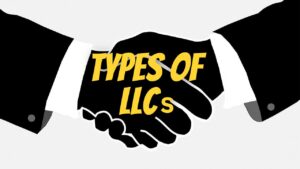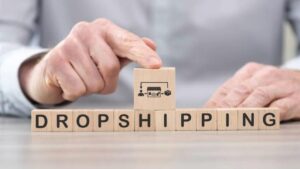
Let’s explore the world of e-commerce licenses and permits to ensure your online business operates legally and smoothly:
e-commerce Licenses and Permits
1. General Business License:
- Purpose: Allows your e-commerce business to operate legally within your city, county, or state.
- Requirement: Virtually every online business needs this license to conduct business.
- Tip: Research your specific state’s regulations to determine the exact requirements.
2. Employer Identification Number (EIN):
- Purpose: An EIN is like a Social Security number for your business.
- Requirement: Obtain an EIN from the IRS to register as a tax-paying entity.
- Use Cases: Claim profits and losses against your business earnings.
3. Doing Business As (DBA) License:
- Purpose: Allows you to use a different name (DBA) for your business.
- Use Cases: DBA names can be used on your website, in ads, and promotions.
- Check State Requirements: Some states mandate a DBA registration.
4. Seller’s Permit:
- Purpose: Necessary for sales tax collection.
- Requirement: Almost all states require a seller’s permit for online retailers.
- Tip: If your products are subject to sales tax, obtain a business tax registration (seller’s permit).
5. Sales Tax License:
- Purpose: Allows you to collect and remit sales tax.
- Requirement: Varies by state; check your state’s rules.
- Importance: Compliance with sales tax laws is crucial for e-commerce businesses.
6. Home Occupation Permit:
- Purpose: Required if you operate your e-commerce business from home.
- Check Local Regulations: Some cities or counties have specific rules for home-based businesses.
7. Occupational License:
- Purpose: Required for certain occupations or industries.
- Research Your Industry: Depending on your niche (e.g., health, finance), additional licenses may apply.
Licenses and Permits when Business Expands to Other States
Expanding to Other States:
- When your e-commerce business expands to other states, research the specific licensing requirements in each state.
- Consider factors like physical presence (having a retail location) and local employees.
- Obtain any necessary licenses or permits for each state where you operate.
Industry-specific Licenses for e-commerce Businesses
- While general licenses apply to most e-commerce businesses, some industries have unique requirements.
- For example, selling food products online may require additional permits (such as food handling licenses).
- Research your specific industry to identify any specialized licenses you might need.
Specific Privacy or Data Protection Requirements for e-commerce Businesses?
Data Protection and Privacy Requirements:
Explicit User Consent:
- Obtain user consent before collecting personal information.
Transparent Notices:
- Clearly inform users about data collection, processing, and storage.
Robust Data Protection Measures:
- Implement security protocols to safeguard user data.
Data Breach Notification:
- Have incident response plans in place.
Regular Audits:
Advertising Regulations for E-Commerce Businesses:
United States:
- The FTC enforces advertising rules. Advertisements must be truthful and not misleading.
- The CAN-SPAM Act requires specific information in unsolicited commercial emails.
India:
- E-commerce regulations cover areas like data protection, cybersecurity, and tax treatment.
- Specific obligations apply to B2B and B2C e-commerce businesses.
- Compliance with the Consumer Protection Act and E-commerce Rules is essential.
Remember to stay informed about legal requirements and adapt your business practices accordingly. 🌐💼
Influencer Marketing Rules in E-Commerce:
What Is Influencer Marketing?
- It involves collaborating with influencers to promote your products or services to their audience.
- Influencers have established followings of people who trust their recommendations.
Finding Influencers:
- Use hashtag research, competitor analysis, or influencer marketing platforms.
- Monitor brand mentions and build rapport with influencers.
Legal Considerations:
- Ensure your influencer marketing campaigns are identifiable as advertising.
- Comply with legal monitoring bodies and disclosure requirements.
- Protect your business and customers with clear policies.
Remember that legal compliance is essential for the success of your dropshipping business and influencer marketing efforts! 🌟📝
Selling Dietary Supplements or Herbal Products:
Selling dietary supplements or herbal products involves additional considerations:
- Regulations: Ensure compliance with regulations specific to these products (e.g., FDA guidelines in the United States).
- Quality Control: Source products from reputable suppliers to maintain quality and safety.
- Labeling: Properly label ingredients, usage instructions, and potential side effects.
- Claims: Avoid making false health claims about the products.
- Consult Legal Experts: Seek legal advice to navigate industry-specific requirements.
Social Media Advertising in E-Commerce:
To advertise effectively on social media:
- Identify Your Target Market: Understand your audience and tailor your ads accordingly.
- Customize Ad Formats: Adapt your ads for each social media platform.
- Monitor and Adjust: Regularly analyze ad performance and make necessary adjustments.
- Set Clear Goals: Define your objectives and key performance indicators (KPIs).
- Choose Relevant Ad Types: Align ad types with your goals (e.g., awareness, conversions).
Remember that legal compliance and strategic marketing are essential for your e-commerce business’s success! 🌟📝
Handling Intellectual Property Issues in E-Commerce:
Intellectual Property (IP) is crucial for e-commerce businesses. Here’s how to handle it:
- Trademarks: Register your brand name and logo as trademarks to protect them from infringement.
- Copyrights: Ensure your website content, product descriptions, and images are original and not copied.
- Patents: If you have unique inventions or processes, consider patent protection.
- Design Rights: Protect the visual appearance of your products.
- IP Audits: Regularly review your IP assets and enforce your rights when necessary.
Email Marketing Rules in E-Commerce:
Transactional Emails:
- Send order confirmations, shipping notifications, and receipts.
- These emails have high open rates and are expected by customers.
Promotional Emails:
- Use personalized, relevant content.
- Optimize subject lines and preview text.
- Avoid using a no-reply email address.
Segmentation:
- Divide your email list based on customer behavior (e.g., purchase history, engagement).
Automation:
- Set up automated emails triggered by specific actions (e.g., abandoned carts, welcome series).
Design and Branding:
- Create visually appealing emails that reflect your brand.
- Standardize dimensions for consistency.
Compliance:
- Include an unsubscribe link.
- Follow anti-spam laws (e.g., CAN-SPAM Act in the U.S.).
Remember that understanding and adhering to these guidelines will enhance your e-commerce business’s success! 🌟📧
Handling Customer Reviews and Testimonials on Your E-commerce Website:
Importance of Testimonials:
- Customer testimonials are powerful social proof that can increase trust and drive sales.
- They validate your brand and products, influencing potential customers.
Best Practices for Testimonials:
- Make It Easy: Simplify the review process for customers. Clear calls-to-action encourage more reviews.
- Ask for Reviews: Promptly ask satisfied customers to leave reviews after their purchase.
- Display Prominently: Showcase testimonials on product pages or a dedicated section of your website.
- Use Review Apps: Integrate review apps to collect and display customer ratings and testimonials.
Rules for SMS Marketing in E-commerce:
Get Permission:
- Obtain explicit consent from customers before sending SMS marketing messages.
- Comply with regulations like the Telephone Consumer Protection Act (TCPA).
Keep It Short and Relevant:
- SMS messages should be concise and valuable.
- Use SMS for timely updates, order confirmations, and personalized offers.
Personalize Content:
- Address recipients by name and tailor messages based on their preferences.
Opt-Out Option:
- Include an easy way for customers to unsubscribe from SMS marketing.
Track Performance:
- Use UTM parameters to analyze customer behavior in Google Analytics.
Avoid Overuse:
- Don’t bombard customers with excessive SMS messages; maintain a balance.
Remember that effective testimonials, authentic product descriptions, and compliant SMS marketing contribute to a successful e-commerce business! 🌟🛒
Handling Customer Inquiries and Support in E-commerce:
Prompt Responses:
- Aim to respond promptly to customer inquiries. Use automated responses or chatbots if possible.
Clear Communication:
- Be concise and provide accurate information.
- Address customer concerns professionally and empathetically.
FAQs and Knowledge Base:
- Create an FAQ section on your website.
- Build a knowledge base with common solutions.
Multichannel Support:
- Offer support via email, live chat, social media, and phone.
Returns and Refunds:
- Clearly communicate your return and refund policies.
- Process returns efficiently.
Customer Feedback:
- Encourage customers to leave reviews and feedback.
- Use feedback to improve your products and services.
Rules for Push Notifications in E-commerce Apps:
- Permission: Obtain user consent before sending push notifications.
- Relevance: Send personalized and relevant notifications.
- Frequency: Avoid excessive notifications; respect users’ preferences.
- Timing: Send notifications at appropriate times (e.g., not during late hours).
- Opt-Out Option: Include an easy way for users to disable push notifications.
- Content: Keep messages concise and valuable.
Remember that excellent customer support, accurate product descriptions, and compliant notifications contribute to a successful e-commerce business! 🌟🛒📧
Handling Product Returns and Exchanges in E-commerce:
E-commerce returns refer to the process where customers send back items they’ve purchased online. Here are some best practices:
Clear Return Policy:
- Clearly communicate your return and exchange policies on your website.
- Include details about timeframes, conditions, and any associated fees.
Streamlined Process:
- Make it easy for customers to initiate returns or exchanges.
- Provide a dedicated section on your website or a customer portal.
Inspect Returned Goods:
- Upon receiving returned items, inspect them promptly.
- Determine whether they’re eligible for resale or need refurbishing.
Restocking or Disposal:
- Restock items that are in good condition.
- Dispose of damaged or unsellable products responsibly.
Refunds or Exchanges:
- Process refunds promptly according to your policy.
- Facilitate exchanges for different sizes or variations.
Customer Communication:
- Keep customers informed about the status of their returns or exchanges.
- Use automated notifications or chatbots to provide updates.
Rules for Chatbots in Customer Support on E-commerce Websites:
1. Types of Chatbots:
Rule-Based Chatbots:
- Follow predefined scripts and pathways.
- Ideal for FAQs and handling simple tasks.
Conversational AI Chatbots:
- Use natural language processing (NLP) to understand nuanced human language.
- Provide more human-like assistance.
Hybrid Chatbots:
- Combine AI and rules-based conversations.
- Adapt to handle both simple and complex queries.
2. Omnichannel Integration:
- Integrate chatbots with messaging apps (WhatsApp, Facebook Messenger, etc.).
- Offer seamless support across channels.
3. Benefits:
- Provide always-on support.
- Reduce customer service interactions.
- Improve user experience and response times.
Remember that effective returns management, accurate product descriptions, and responsive chatbots contribute to a successful e-commerce business! 🌟🛒🤖
Remember to stay informed about updates, renewals, and changes in regulations. Compliance ensures your e-commerce venture thrives legally! 🌟📝































This is a topic close to my heart cheers, where are your contact details though?
I dugg some of you post as I cerebrated they were extremely helpful handy
Great wordpress blog here.. It’s hard to find quality writing like yours these days. I really appreciate people like you! take care
I’ve been absent for a while, but now I remember why I used to love this site. Thank you, I’ll try and check back more frequently. How frequently you update your website?
Good day! This is my first comment here so I just wanted to give a quick shout out and tell you I genuinely enjoy reading your posts. Can you recommend any other blogs/websites/forums that cover the same topics? Thanks for your time!
You really make it seem so easy along with your presentation but I in finding this topic to be actually something which I think I might never understand. It sort of feels too complicated and extremely huge for me. I am looking ahead on your next put up, I will attempt to get the dangle of it!